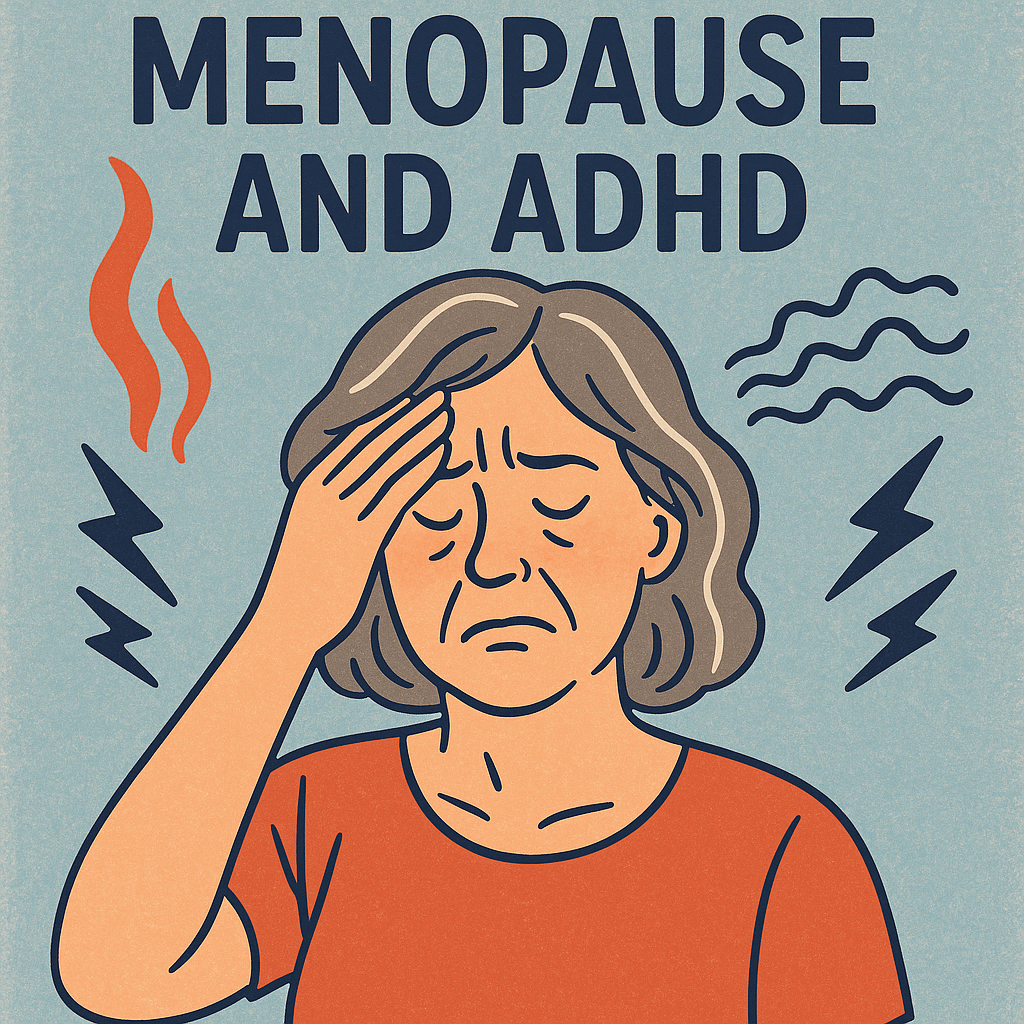Menopause and ADHD
For many women, menopause feels like hitting an unexpected crossroads, where focus, memory and emotional balance suddenly seem harder to hold onto.
But for those with ADHD, this life stage can feel like turning up the volume on symptoms they have spent a lifetime managing quietly.
At Imagine How, we believe that understanding this connection is not just empowering, it is essential to helping women stay well, stay confident and stay in work.
The Hidden Intersection
Research into menopause and ADHD is still in its early stages, but what we know so far paints an important picture.
A growing body of evidence shows that falling oestrogen levels during perimenopause and menopause affect dopamine and serotonin, the neurotransmitters that underpin attention, motivation and mood regulation. For women with ADHD, this hormonal shift can amplify existing challenges with focus, impulsivity, emotional regulation and executive function.
A recent systematic review (2025) confirmed that ADHD symptoms fluctuate with hormonal changes across a woman’s life, although very few studies yet explore menopause directly. What is clear is that many women report a sharp increase in symptoms during perimenopause, even those who have never been formally diagnosed with ADHD before.
When Menopause Masks or Magnifies ADHD
One of the difficulties is that menopausal cognitive symptoms, often described as “brain fog”, can look and feel a lot like ADHD.
Forgetfulness, poor concentration, losing track of tasks and emotional swings can all stem from hormonal changes. But for women who already have ADHD, menopause can magnify these experiences until daily life feels unmanageable.
A 2025 article in Frontiers in Global Women’s Health highlighted that women with ADHD often experience a steeper drop in functioning during perimenopause. Some describe this time as “like losing all my coping strategies overnight”. Others find that symptoms they had learned to mask become more visible, more disruptive and more misunderstood.
The Science Behind It
Oestrogen does not just regulate reproduction, it supports the brain.
It helps to maintain dopamine transmission, which is vital for attention and motivation. As oestrogen levels fall, dopamine activity can dip too, leading to a cascade of effects that mirror or intensify ADHD traits.
Emerging studies from Cambridge University and the Journal of the International Neuropsychological Society show that hormonal changes at midlife can unmask previously hidden ADHD symptoms or cause existing ones to spike. While these studies are small, they are part of an important shift: researchers are finally looking at women’s neurobiology through a life-stage lens.
Why This Matters in the Workplace
The combination of ADHD and menopause can create a perfect storm, especially at midlife, when many women are at the height of their careers.
Without understanding or support, these challenges can erode confidence, fuel burnout and even drive women out of work unnecessarily.
That is why workplaces need to go beyond one-size-fits-all wellbeing initiatives.
Neurodivergent women often need flexibility, structure and sensory-aware environments to thrive. And when menopause arrives, those needs do not disappear, they multiply.
Moving Forward
The research is still catching up, but the message is already clear: we must talk about menopause and ADHD together.
By understanding how hormonal shifts interact with neurodiversity, we can create more inclusive and compassionate systems at home, at work and in healthcare.
At Imagine How, we see this as part of our mission to change how menopause is understood and supported for future generations.
Because when we recognise the full picture – hormones, neurodiversity and humanity – we do not just help women cope.
We help them flourish.

